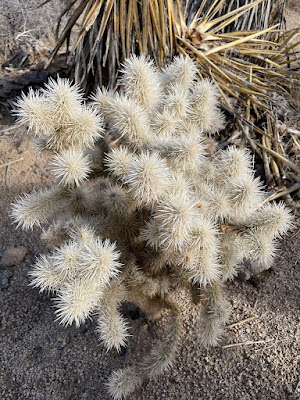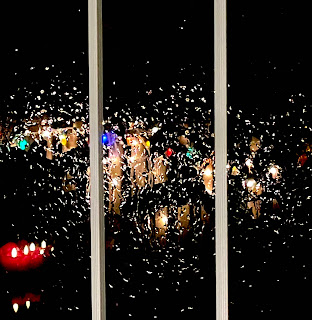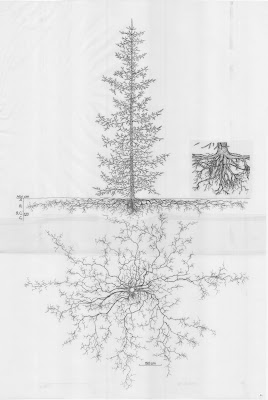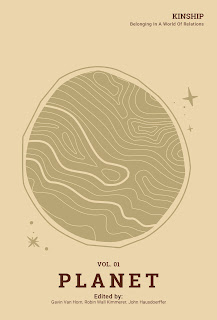 And somehow, another new year beckons, and the habit of hoping.
And somehow, another new year beckons, and the habit of hoping.
Friday, December 31, 2021
Thursday, December 30, 2021
Just desert

Tuesday, December 28, 2021
Monday, December 27, 2021
PSA
Sunday, December 26, 2021
Beach coreopsis
Finding the stars
Disturb us, O Lord
when we are too well-pleased with ourselves
when our dreams have come true because we dreamed too little,
because we sailed too close to the shore.
Disturb us, O Lord
when with the abundance of things we possess,
we have lost our thirst for the water of life
when, having fallen in love with time,
we have ceased to dream of eternity
and in our efforts to build a new earth,
we have allowed our vision of Heaven to grow dim.
Stir us, O Lord
to dare more boldly, to venture into wider seas
where storms show Thy mastery,
where losing sight of land, we shall find the stars.
In the name of Him who pushed back the horizons of our hopes
and invited the brave to follow.
Amen
Saturday, December 25, 2021
Listen!

Reunited in California with the familiar Mexican nativity after a year's hiatus, but still enjoying our church community in New York. In her sermon at the Chrismas Vigil (streamed), our rector recalled the late Stephen Sondheim's argument against the use of amplification in theaters: it makes the theatergoer a mere passive visitor, instead of a participant, leaning forward to make out the words. In this year's array even the angels seem to be leaning forward, even the star.
Friday, December 24, 2021
Tuesday, December 21, 2021
Le silence eternel des ces espaces infinis m'effraie
Monday, December 20, 2021
Sunday, December 19, 2021
Into the sunset

Saturday, December 18, 2021
Risk levels
Friday, December 17, 2021
Theory in practice
Because of the vagaries of holidays, courses in this endless-seeming semester have been wrapping up for over a week. My Wednesday class finished last week. My Tuesday-Thursday class finished Tuesday of this week. And "Theorizing Religion," which meets Fridays, ended today. I thought students might be ready to let it go and at last week's meeting offered to move the final class on zoom (or even cancel it), but they wanted to gather one more time - and for it to be in person. And so we were, on an otherwise empty campus. In fact, because of unseasonal weather, we spent our final hour sitting outdoors! Not everyone came but there were eight stalwarts (the mandala impresario was on my laptop) and it felt positively countercultural.

Thursday, December 16, 2021
Masked ball
Sunset spectacular
 Reminder that the sky is bigger than it seems: near simultaneous pics
Reminder that the sky is bigger than it seems: near simultaneous pics from Greenwich Village, Morningside Heights and Hastings on Hudson
from Greenwich Village, Morningside Heights and Hastings on Hudson 
Wednesday, December 15, 2021
Tuesday, December 14, 2021
Root systems
Kinning
This had its pleasures too - the last voices students heard were each other's, in more or less collaborative group presentations, working our way through the concentric circles of the project: Planet, Place, Partners, Persons, Practice. Each student got to choose a chapter they were particularly drawn to to discuss, but they also had to reflect together on their volume's range of texts, why they thought they were arranged as they were, how the volume fit into the larger series... and whether and how the Anthropocene was mentioned and thematized.
 .., which, by and large, it wasn't! I didn't know this when I created the course, the Kinship books having not yet been published, but it's fine with me. The Anthropocene was in the background of many pieces, students found, not referred to by that name but clearly an animating concern. Indeed, they remarked, Kinship's responses got beyond the meta-level discussions about nomenclature which made up the first part of our class, and dissolved the panicked paralysis which those discussions can produce. Instead of "Anthropocene," the word that kept coming up: "hope."
.., which, by and large, it wasn't! I didn't know this when I created the course, the Kinship books having not yet been published, but it's fine with me. The Anthropocene was in the background of many pieces, students found, not referred to by that name but clearly an animating concern. Indeed, they remarked, Kinship's responses got beyond the meta-level discussions about nomenclature which made up the first part of our class, and dissolved the panicked paralysis which those discussions can produce. Instead of "Anthropocene," the word that kept coming up: "hope." I do have hope, although I also still hold a lot of doubt as well, but I can face the unknown outcome with acceptance now instead of just a cesspool of dread and absolute terror.
I do have hope, although I also still hold a lot of doubt as well, but I can face the unknown outcome with acceptance now instead of just a cesspool of dread and absolute terror. It was encouraging to be finishing with the Kinship volumes, each of which is an invitation to a community of ecological artists and scholars and activists - many of them members of Indigenous communities throughout the world - who have devoted careers to what Gavin Van Horn, one of the co-editors, calls "kinning":
It was encouraging to be finishing with the Kinship volumes, each of which is an invitation to a community of ecological artists and scholars and activists - many of them members of Indigenous communities throughout the world - who have devoted careers to what Gavin Van Horn, one of the co-editors, calls "kinning": While the Anthropocene isn't mentioned, this project dovetails with some of the most important engagements with the Anthropocene that we read earlier in the semester, notably Amitav Ghosh's challenge to find ways to narrate our forgotten interdependence with the non-human, Heather Davis and Zoe Todd's argument that colonialism and its Anthropocene afterlife is all about a fatal "severing of relations," and Donna Haraway's call for us to learn to "make kin." The more perceptive students noticed that the sequence of essays I'd had them write had been moving in this direction from the start.
While the Anthropocene isn't mentioned, this project dovetails with some of the most important engagements with the Anthropocene that we read earlier in the semester, notably Amitav Ghosh's challenge to find ways to narrate our forgotten interdependence with the non-human, Heather Davis and Zoe Todd's argument that colonialism and its Anthropocene afterlife is all about a fatal "severing of relations," and Donna Haraway's call for us to learn to "make kin." The more perceptive students noticed that the sequence of essays I'd had them write had been moving in this direction from the start.Sunday, December 12, 2021
Live on stage!

 Festive return to live performance this weekend. On Friday, friends invited us to the vast Cecilia Chorus' first performance in two years, at Carnegie Hall no less! Margaret Bonds' charming 1954 "Ballad of the Brown King" was followed by Mozart's "vest-pocket" version of Handel's Messiah. And today it was our neighbors across the street, Manhattan School of Music, the sublimely saucy "Orphée aux enfers" their first live opera since 2019.
Festive return to live performance this weekend. On Friday, friends invited us to the vast Cecilia Chorus' first performance in two years, at Carnegie Hall no less! Margaret Bonds' charming 1954 "Ballad of the Brown King" was followed by Mozart's "vest-pocket" version of Handel's Messiah. And today it was our neighbors across the street, Manhattan School of Music, the sublimely saucy "Orphée aux enfers" their first live opera since 2019.


































